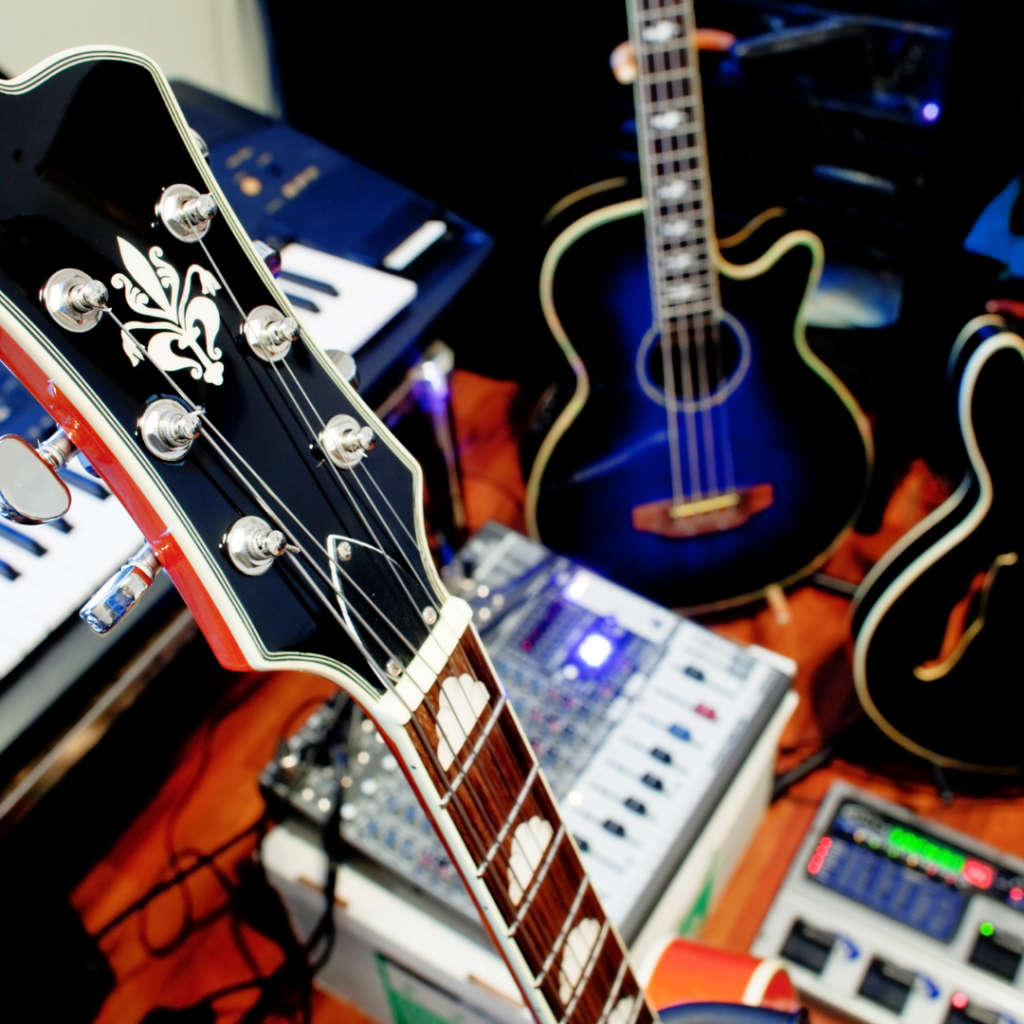
5 Must-Haves for Your Home Recording Studio
Even though home recording was once a niche market, it has now become the mainstream. The demand for quality audio continues to increase. There are many things that you will need to set up a studio for your home recording. And not just any setup will do, you have to consider many factors that can make or break your studio.
How is Home Recording Studio essential nowadays?
The importance of a home recording studio is being realized in the latest world of technology. It offers many benefits, such as giving users the ability to create music with a low cost and high-quality sound. Many people use this option for their business or personal projects as an effective tool to get their work done. The home recording studio can easily be established by investing a small amount of money and time. Doing enough research is vital for this purpose. For instance, if you want to host your content on the web, what would be the ideal procedures that you have to follow? Well, to begin with, you need to make the content ready. As a musician, people always look up to your music and not what goes behind it. Yes, for the background work, you can hire professionals who have expertise in coding, design, and other related fields to do the work for you, and you can just focus on creating the music. But, what if you do not have enough funds to hire them? Simple steps could be your ideal solution. You can start checking out guides from the likes of Linode to learn how to host a music web application using LAMP stack, for instance, enroll in short-term courses and learn the nitty-gritty of managing the work, and also talk to experts and gather as much information as possible. Initially, it would be a hassle. But, as time goes on, you could be climbing the ropes, and in no time, you might learn to handle everything independently.
Home recording studios have been around since the 1970s and have seen a surge in recent years as more and more people have started using them for music production or podcasts.
Getting the Right Equipment on your Home Recording Studio
Setting up a home recording studio opens up a world of creative possibilities for making your own music or capturing voice recordings. The key to an effective home studio lies in having the right equipment, ranging from a mobile recording setup to essential devices like audio interfaces. The market offers a diverse array of options, so finding the perfect equipment for your studio can be tricky. Of course, your budget will play a role in your choices, but having these devices can create a rich musical experience for you and your family.
In addition to choosing the right equipment, it is important to pay attention to the electrical aspects of your studio setup. Consider checking the power requirements of the recording equipment you plan to purchase and make sure that you have the right power outlet to support the system. Introducing smart power strips is also a great idea, especially when various recording devices need to be powered on together. These tasks are often manageable on your own. However, if there are any specific electrical conditions such as checking proper grounding or assessing the circuit compatibility, you might consider calling an electrician for assistance. An expert from firms like ML Electrical & Garage Doors (https://www.mlelectricalandgarage.com/) can address any electrical concerns and can assist you in effectively setting up your home recording studio.
After you have successfully addressed the electrical requirements of your studio, it is time to dive into acquiring the necessary equipment. Here, we have highlighted five essential types of gear that are absolute must-haves when you are setting up your home recording space.
- A computer (ideally one with a dedicated audio interface) -In most situations, the computer’s audio interface is its integrated audio card. However, this has limitations. For instance, you can’t connect a USB microphone or MIDI controller to it.
If you have a Creative Labs sound card with an integrated audio interface, you can simultaneously connect up to four USB devices. You won’t be able to use the internal mic and MIDI controller on that sound card because they are associated with other I/O ports on the sound card.
You will need a dedicated audio interface for your computer if you want to record high-quality audio directly into your DAW of choice from professional microphones or instruments such as guitars and pianos.
- A microphone – A microphone is not just used for voice recording but also live to record. On the other hand, microphones can be used to anonymize conversations in public spaces and private spaces (like recording in the bathroom).
Additionally, microphones are useful in live performances so musicians can hear their audience’s reactions to the song they are playing.
- A quality pair of headphones or speakers – A good pair of headphones or speakers will also help you get the best sound into the microphone while recording. In order to make sure that certain frequencies are able to reach the microphones, a good pair of headphones is needed.
Many professionals use these accessories in their work, so they should be included in any home studio space that runs on professional equipment.
- Audio software and plug-ins of choice – Audio software and plug-ins are essential tools in a Home Recording Studio. They help improve recording quality and speed up the process of editing.
Audio software includes audio trackers, sound editors, live playback tools, sound effects plugins, voice-over plugins, and so on. Plug-ins include compressors, EQs, limiters, and more.
- A mixing desk and/or music stand – If you are serious about creating professional sound, you need to invest in a good mixing desk and music stand. You can check companies like office monster to find the furniture that will suit your needs. A lot of people who are just getting into home recording don’t necessarily need these devices because they think they can make professional recordings without them.
This is not true because if anything goes wrong during the recording process – which often happens – then your sound will be ruined and the quality of your music.


